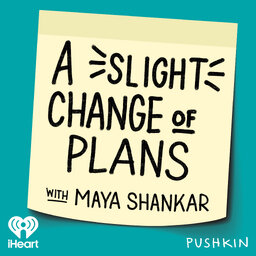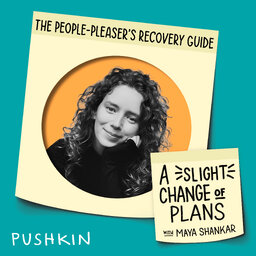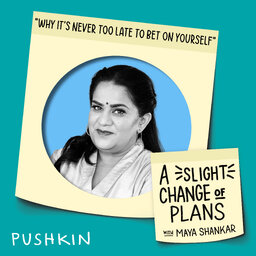As a firefighter, Christy Warren made rescuing people her life's work. Her toughness earned her praise from her peers. But after decades of rescuing others, suddenly Christy became the one who needed saving.
You can follow the show on Instagram @DrMayaShankar.
If you’d like to keep up with the most recent news from this and other Pushkin podcasts be sure to sign up for our email list at Pushkin.fm.
 A Slight Change of Plans
A Slight Change of Plans


